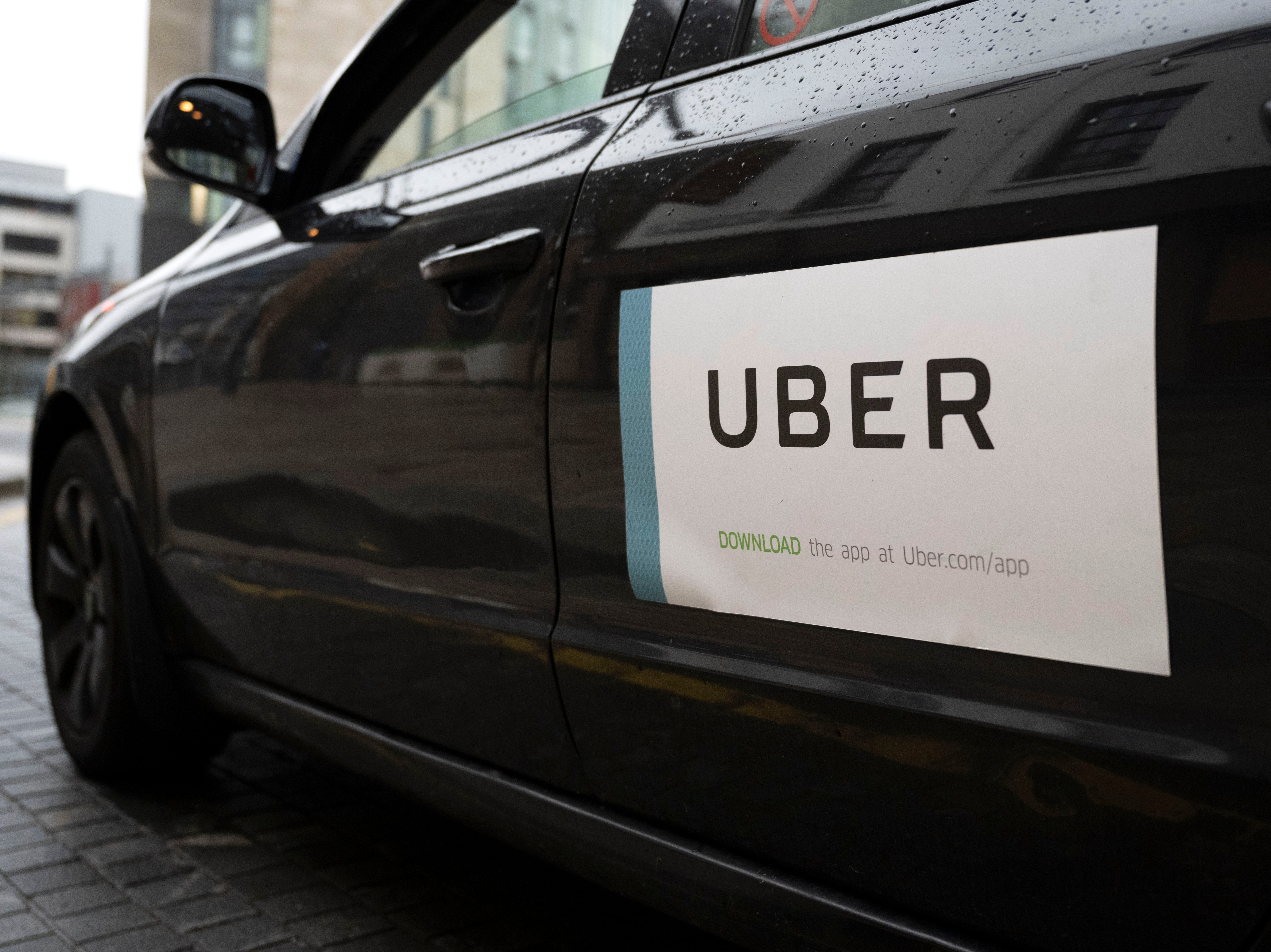Uber to introduce holiday pay and pensions for UK drivers after Supreme Court defeat
Ride-hailing app agrees to give workers’ rights after landmark ruling

Your support helps us to tell the story
From reproductive rights to climate change to Big Tech, The Independent is on the ground when the story is developing. Whether it's investigating the financials of Elon Musk's pro-Trump PAC or producing our latest documentary, 'The A Word', which shines a light on the American women fighting for reproductive rights, we know how important it is to parse out the facts from the messaging.
At such a critical moment in US history, we need reporters on the ground. Your donation allows us to keep sending journalists to speak to both sides of the story.
The Independent is trusted by Americans across the entire political spectrum. And unlike many other quality news outlets, we choose not to lock Americans out of our reporting and analysis with paywalls. We believe quality journalism should be available to everyone, paid for by those who can afford it.
Your support makes all the difference.Uber has agreed to give its UK drivers holiday pay and pensions after a landmark Supreme Court ruling.
The ride-hailing app will give workers’ rights to more than 70,000 drivers from Wednesday after losing its case at the UK’s top court last month.
In a case led by two former Uber drivers, an employment tribunal ruled in 2016 that they were due entitlements such as paid holidays, prompting Uber to appeal the decision to the top of Britain’s legal system.
Uber said after February’s ruling it would consult with drivers, while lawyers said it could take several months for the details of the ruling to be worked out at a further employment tribunal hearing. Meanwhile more cases could be filed.
On Tuesday, Uber said drivers would be paid holiday time, enrolled in a pension scheme and receive no less than the national minimum wage, which stands at £8.72 an hour for those aged 25 years and over.
The company said drivers would earn minimum wage between the times they accept and complete a trip – but not just by being active on the app.
Read more
A spokesperson said this was to enable drivers to retain flexibility and not have to follow a shift pattern, and to be able to work for other operators while waiting to accept an Uber trip.
But the Supreme Court ruling means Uber should be considering its drivers workers from when they log into the company’s app until they log off, not just when they have a passenger in their car.
The Silicon Valley-based company said its drivers in London, one of its most important markets, earned £17 an hour on average and that the flexibility to choose if, when and where they work would be retained.
Uber has faced opposition from traditional taxi operators and unions have criticised the app for undercutting existing players, leading to protests and regulatory and legal challenges which have led the company to pull out of some markets.
Last year France’s top court recognised the right of an Uber driver to be considered an employee, while European Union regulators are considering new rules to protect gig economy workers.
In October, a California appeals court ruled Uber must reclassify its drivers in the state as employees – but the company saw off the challenge after voters backed a public ballot proposal in November that cemented app-based ride-hail drivers' status as independent contractors.
In Britain, people classified as workers are entitled to fewer rights than those classed as employees, who are also guaranteed sick pay and parental leave.
Tuesday's announcement could impact others in the gig economy, where millions of people tend to work for one or more companies on a job-by-job basis.
Jamie Heywood, Uber's Northern and Eastern Europe boss, said in a statement: “Uber is just one part of a larger private-hire industry, so we hope that all other operators will join us in improving the quality of work for these important workers who are an essential part of our everyday lives.”
The GMB union said Uber had “finally done the right thing after losing four court battles”.
National officer Mick Rix said: “It's a shame it took GMB winning four court battles to make them see sense, but we got there in the end and ultimately that's a big win for our members.
“GMB has consistently said we are willing to speak face to face to Uber about its treatment of drivers – our door remains open. Other gig economy companies should take note.”
Additional reporting by Reuters
Join our commenting forum
Join thought-provoking conversations, follow other Independent readers and see their replies
Comments